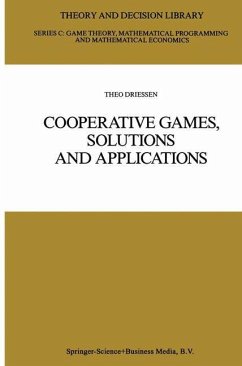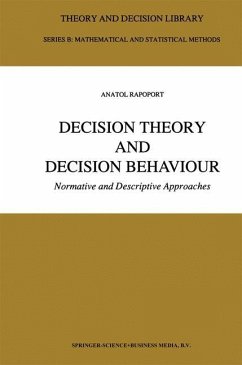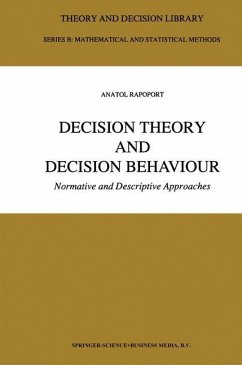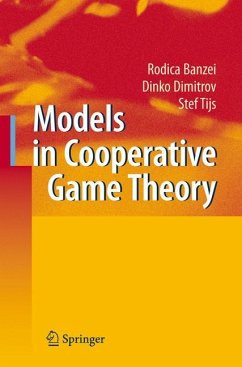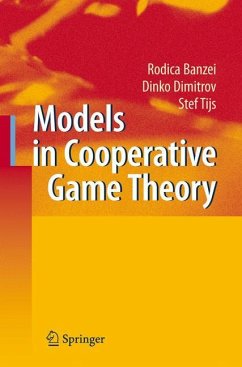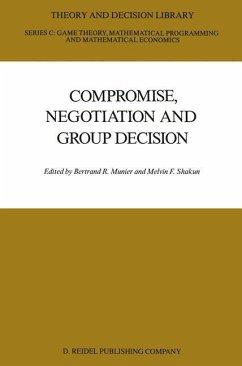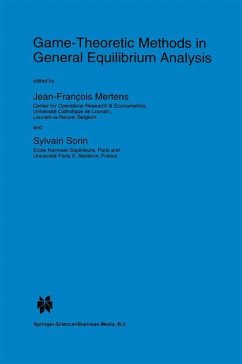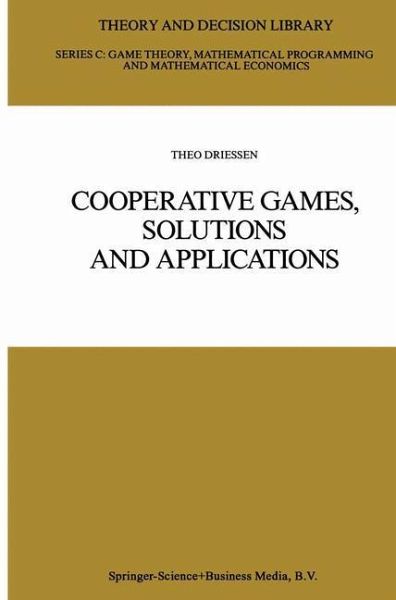
Cooperative Games, Solutions and Applications
Versandkostenfrei!
Versandfertig in 6-10 Tagen
93,99 €
inkl. MwSt.
Weitere Ausgaben:

PAYBACK Punkte
47 °P sammeln!
The study of the theory of games was started in Von Neumann (1928), but the development of the theory of games was accelerated after the publication of the classical book "Theory of games and economic behavior" by Von Neumann and Morgenstern (1944). As an initial step, the theory of games aims to put situations of conflict and cooperation into mathematical models. In the second and final step, the resulting models are analysed on the basis of equitable and mathematical reasonings. The conflict and/or cooperative situation in question is generally due to the interaction between two or more indi...
The study of the theory of games was started in Von Neumann (1928), but the development of the theory of games was accelerated after the publication of the classical book "Theory of games and economic behavior" by Von Neumann and Morgenstern (1944). As an initial step, the theory of games aims to put situations of conflict and cooperation into mathematical models. In the second and final step, the resulting models are analysed on the basis of equitable and mathematical reasonings. The conflict and/or cooperative situation in question is generally due to the interaction between two or more individuals (players). Their interaction may lead up to several potential payoffs over which each player has his own preferences. Any player attempts to achieve his largest possible payoff, but the other players may also exert their influence on the realization of some potential payoff. As already mentioned, the theory of games consists of two parts, a modelling part and a solution part. Concerning the modelling part, the mathematical models of conflict and cooperative situations are described. The description of the models includes the rules, the strategy space of any player, potential payoffs to the players, the preferences of each player over the set of all potential payoffs, etc. According to the rules, it is either permitted or forbidden that the players communicate with one another in order to make binding agreements regarding their mutual actions.





